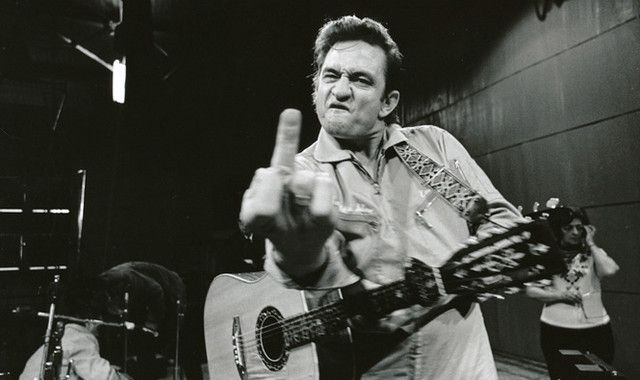The DU Lounge
Related: Culture Forums, Support ForumsDoes this 1953 song sound familiar?
Listen to the whole thing. See if you can recall who might've cashed in on this song.
denbot
(9,898 posts)[IMG]
 [/IMG]
[/IMG]Enrique
(27,461 posts)it sounds a little older than that.
Thor_MN
(11,843 posts)"Crescent City Blues" is a song written by composer Gordon Jenkins and sung by Beverly Mahr, and released on his Seven Dreams album in 1953. It is a torch song about a lonely woman hoping to leave the Midwestern town of Crescent City. Its melody is borrowed heavily from the 1930s instrumental "Crescent City Blues" by Little Brother Montgomery. It is most notable for having been adapted by singer Johnny Cash as the "Folsom Prison Blues."
https://en.wikipedia.org/wiki/Crescent_City_Blues
progressoid
(49,952 posts)Baby, Please Don't Go" is a blues song which has been called "one of the most played, arranged, and rearranged pieces in blues history" by music historian Gerard Herzhaft.[1] It was likely an adaptation of "Long John", an old folk theme dating back to slavery in the United States. Delta blues musician Big Joe Williams popularized it with several versions beginning in 1935. The song's roots have been traced back to nineteenth-century American songs which deal with themes of bondage and imprisonment. "Baby, Please Don't Go" became an early blues standard with recordings by several blues musicians, such as Papa Charlie McCoy, Leonard "Baby Doo" Caston, Lightnin' Hopkins, John Lee Hooker and Big Bill Broonzy.
After World War II, Chicago blues and rhythm and blues artists adapted the song to newer music styles. In 1952, a doo-wop version by the Orioles reached the top ten on the race records chart. In 1953, Muddy Waters recorded the song as an electric Chicago-ensemble blues piece, which influenced many subsequent renditions.
In the 1960s, "Baby, Please Don't Go" became a popular rock song after the Northern Irish group Them recorded it in 1964. Several music writers have identified Jimmy Page, a studio guitarist at the time, as participating in the recording, although his exact contributions are unclear. Subsequently, Them's uptempo rock arrangement has become a rock standard. "Baby, Please Don't Go" has been inducted into both the Blues and Rock and Roll Halls of Fame.
https://en.wikipedia.org/wiki/Baby,_Please_Don't_Go